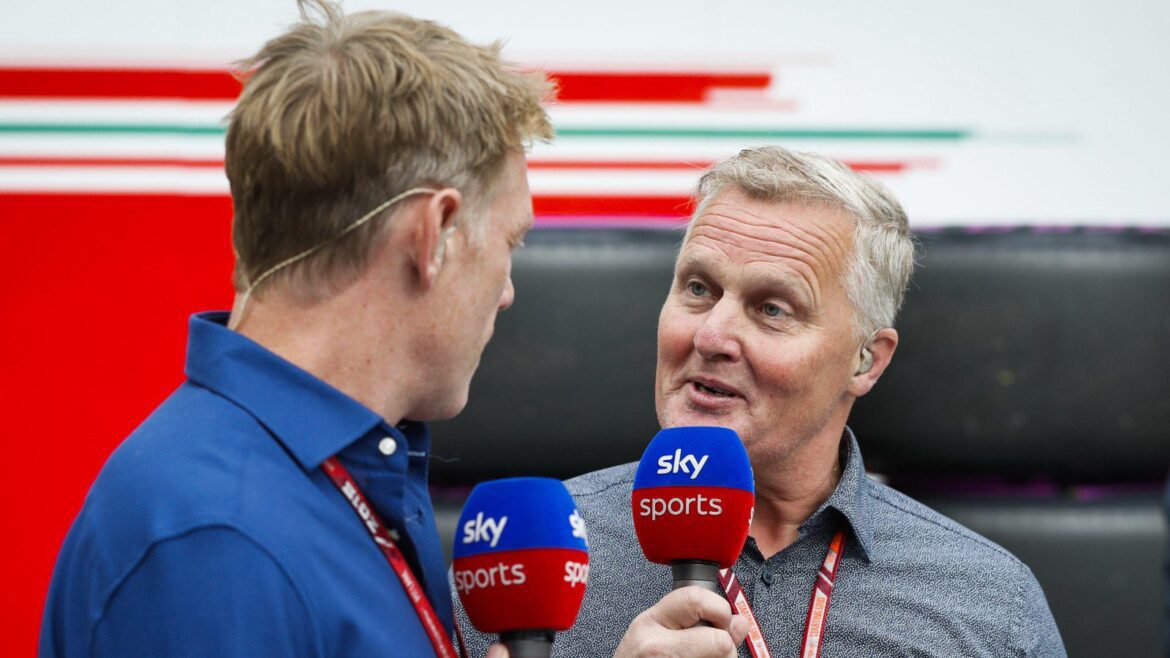Criticism of FIA President: Johnny Herbert Voices Concerns Over Intimidation in Motorsport
Former Formula 1 driver and ex-FIA commissioner Johnny Herbert has recently voiced strong criticisms against FIA President Mohammed Ben Sulayem. Herbert’s remarks center around what he perceives as an increasingly intimidating environment within the sport, suggesting that drivers are losing their ability to speak freely due to the fear of repercussions. He believes this situation has been exacerbated by some recent decisions made by the FIA leader.
Rising Frustration in the Motorsport Community
Herbert pointed out that there is a palpable sense of frustration within the motorsport community regarding various situations that have unfolded in recent times. He highlighted a significant change in the FIA’s leadership structure, specifically mentioning Ben Sulayem’s recent decision to replace Ben Cussons, the British Vice-President of the Royal Automobile Club (RAC), with an Azerbaijani counterpart. Herbert expressed concern that this move indicates a trend toward centralizing power within the FIA president himself.
“This shift feels like it’s consolidating all decision-making authority in one place,” Herbert remarked. This centralization of power raises alarms among many in the motorsport world, suggesting that it might not be in the best interest of the sport or its stakeholders. The implications of such decisions could influence how drivers and teams operate within the context of the FIA’s regulations and policies.
Power Struggles at the Top
Delving deeper into the internal dynamics of the FIA, Herbert noted that there seems to be a power struggle brewing at the top levels of the organization. “It looks like there is a battle for control happening,” he stated. Such power dynamics can often lead to instability and dissatisfaction among stakeholders, including drivers who feel their voices are not being heard.
Herbert pointed out that this internal conflict is contributing to an atmosphere where drivers feel hesitant to express their opinions openly. He posited that this issue has been perpetuated by the current president’s actions, which seem to discourage open dialogue. “Drivers should be able to articulate their feelings without the fear of facing consequences,” he emphasized.
Examples of Intimidation: Max Verstappen’s Case
To illustrate his point, Herbert referenced the incident involving Max Verstappen, who was penalized with community service last year after using inappropriate language during an FIA press conference. Herbert argued that since that incident, Verstappen has adopted a more cautious approach to his public statements, and this restraint appears to have spread to other drivers as well.
“This is not the right way to encourage open communication within the sport,” Herbert commented. He argued that a healthy working environment should promote collaboration among all stakeholders, rather than fostering an atmosphere of fear regarding potential punishments for speaking out.
Support for Alternative Leadership
In light of these concerns, Herbert has expressed his support for Tim Mayer, a candidate for the presidency of the FIA. Mayer, the son of former McLaren executive Teddy Mayer, has previously served as a Formula 1 commissioner. Herbert believes Mayer possesses the qualities necessary to challenge Ben Sulayem’s leadership.
“Tim is very methodical in his approach. I’ve worked alongside him during my time as a commissioner, and I truly believe he would be a strong candidate to take on Sulayem,” Herbert stated. He underscored the importance of having leadership that is willing to be challenged and held accountable for their decisions. “Every president needs someone to push them to improve. The timing is right for a change, but it ultimately depends on who can present the strongest campaign,” he added.
The Call for Unity Among Drivers
Herbert’s comments reflect a broader sentiment within the motorsport community regarding the need for unity among drivers and stakeholders. He believes that the sport can only thrive when its participants feel empowered to share their thoughts and collaborate toward common goals. The current climate, according to him, undermines this essential aspect of competitive racing.
As discussions around leadership and governance in motorsport continue to evolve, it is crucial to consider the perspectives of those directly involved in the sport. Herbert’s criticisms serve as a reminder of the importance of fostering an environment where all voices can be heard without fear of retribution.
Conclusion
While Johnny Herbert’s criticisms of FIA President Mohammed Ben Sulayem echo a growing discontent among drivers and stakeholders, they also highlight the ongoing challenges faced by motorsports organizations. The need for a supportive and open environment within the sport is crucial for its continued success and growth. As the landscape of motorsport governance continues to shift, the conversations surrounding leadership and communication will undoubtedly remain at the forefront of discussions within the industry.
